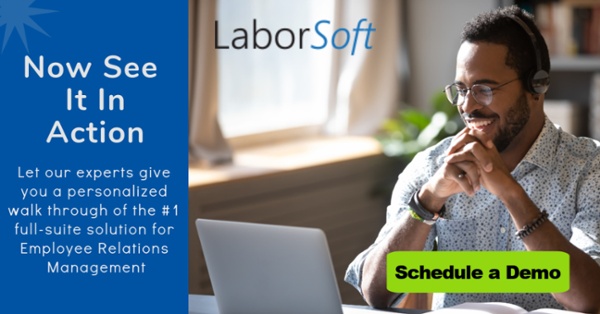 We have all been glued to the news and have immersed ourselves in online statistics for the past 4 months, cautiously awaiting the “go-ahead” from the government to resume normal life [as we once knew it]. However, as time and the virus marches on, it looks like the return to normalcy that we expected to usher in with a Phase 4 opening is being put on hold for a while. Hence, employers have found themselves in a “no man’s land” of decision making—patiently hoping that the mandated red light will flicker into flashing yellow, but no one wants to jump the gun on returning to the workplace and putting lives in danger.
We have all been glued to the news and have immersed ourselves in online statistics for the past 4 months, cautiously awaiting the “go-ahead” from the government to resume normal life [as we once knew it]. However, as time and the virus marches on, it looks like the return to normalcy that we expected to usher in with a Phase 4 opening is being put on hold for a while. Hence, employers have found themselves in a “no man’s land” of decision making—patiently hoping that the mandated red light will flicker into flashing yellow, but no one wants to jump the gun on returning to the workplace and putting lives in danger.
Many of the tech giants, including Google and Facebook, have already announced that their staffs do not have to return to the workplace in person until 2021. However, not all companies can continue to operate remotely so they face the challenge of having to broach this precarious topic with their employees and assess each of their individual plans, which, coupled with the prospect of another quarter or potentially another year of remote learning in American schools, will be very hard to pin down. Due to this nebulous predicament, it is inevitable that employers will come up against refusals of one or more employees to return to work when the office ultimately reopens. So, it is important to be armed with the governmental guidance and general laws and understand your organization’s risk or liability when it comes to a situation of refusal to work.
Reluctance and/or Refusal to Return
First and foremost, is it legal for an employee to refuse to work outright? Well, it likely varies from state to state, so it is important to check federal and state leave requirements, as well as OSHA guidelines, which protect employees in the workplace. The tricky part about the COVID climate is that it is hard to define what is “reasonable” when it comes to conditions and accommodations. Generally, an employee does not have the right to refuse to work due to a potentially unsafe condition in the workplace, but an employer does NOT own the right to discriminate against an employee who chooses to exercise his/her rights afforded by the OSH Act of 1970, which states that employers must provide employees with an environment free from recognized hazards (which COVID-19 could fall under). Given that most traditional office workplaces would be regarded as low or medium exposure risk categories, in the case of receiving complaints about COVID concerns the employer would need to demonstrate that it took the appropriate steps to mitigate the risk of COVID-19 infection or transmission.
It is also critical to be aware of the Families First Coronavirus Response Act (or FFCRA) passed in March, which provides employees the option of leave if “[t]he employee has been advised by a health care provider to self-quarantine due to concerns related to COVID-19” and the U.S. Department of Labor has stated that “concerns related to COVID-19” makes it that the employee is “particularly vulnerable” to the infection. Thus, an employer must provide appropriate documentation and assess if the employee is able to telework. If so, he/she would not be entitled to FFCRA benefits such as paid sick leave, BUT instead could be offered teleworking as a reasonable accommodation. However, if the employee’s condition precludes him/her from teleworking, he/she WOULD be entitled to paid sick leave, and an even longer leave of absence, if it does not impose undue hardship for the employer. (Note that in Nevada, a law was passed this year stating that employers with 50 or more employees must provide a certain amount of accrued paid leave, which an employee can take WITHOUT a reason as long as he/she provides ample notice.)
Defer to Experts in the Case of Disabilities
While the Americans with Disabilities Act (ADA) does not grant an employee the general right to refuse work due to a disability, and a generalized fear of COVID-19 is not, in and of itself, a covered disability under the ADA, it is important as an employer to refer to state and local laws since many states define “disability” differently than the ADA (such as California and New York). But, if an employee does have a covered disability under the ADA (along the lines of Generalized Anxiety Disorder), employers need to recognize that fear of COVID-19 could constitute a manifestation of that disability in the workplace, so the employer would need to engage in the interactive process—providing a reasonable accommodation by investigating all of the available protocols and offerings in order to reduce the risk of infection for the employee—without causing undue hardship to the company. Finally, if the employer and employee cannot arrive at a consensus for a reasonable accommodation, the company reserves the right for the employee to provide substantiation from his/her medical provider.
While the dialogue and reactions to COVID-19 can sometimes feel inflated, it is important to give consideration to each individual case and concern so that your company does not get caught up in any heated disputes or lawsuits over a refusal to come back to work. All in all, it is easy to get mired down in the muck of managing the pandemic, so if you are uncertain of the state’s laws wherein your company operates, seek counsel from an employment attorney to play it safe.
LaborSoft’s innovative technology is one of many integral solutions that keep your business, in business. Our analytics, case management workflows, and our central repository of documentation streamlines case management to mitigate risk of operational bottlenecks, costly lawsuits, and legal ramifications stemming from HR issues and complaints. This sensitive data requires that maximum security protocols are in place and that your information is protected at all times.
-------------------------------------------------------------------

LaborSoft’s innovative technology is one of many integral solutions that keep your business, in business. Our analytics, case management workflows, and our central repository of documentation streamlines case management to mitigate risk of operational bottlenecks, costly lawsuits, and legal ramifications stemming from HR issues and complaints. This sensitive data requires that maximum security protocols are in place and that your information is protected at all times.
Contact us for a customized demonstration and learn how LaborSoft can help you improve communications, build a more collaborative, safe, and supportive workplace, while reducing the likelihood of costly litigation.